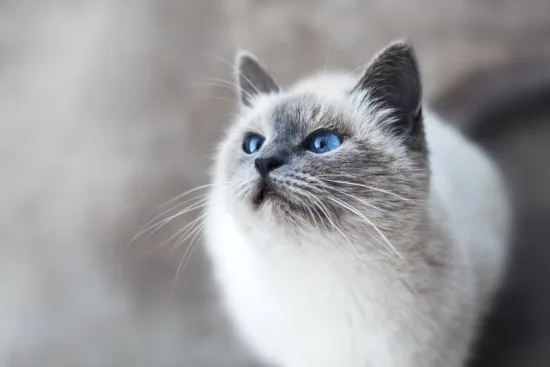
Have you ever wondered who invented Reiki? Well, you’re in luck because we’re here to give you all the details! Reiki is a healing technique that originated in Japan, but its roots go back even further. It is said to have been discovered by a Japanese Buddhist monk named Mikao Usui in the early 20th century.
Mikao Usui was on a quest to find a way to heal both physical and emotional ailments. He spent many years studying various ancient texts and practicing meditation. It is believed that Usui had a spiritual awakening on Mount Kurama, where he received the knowledge and ability to heal through energy transfer. This marked the beginning of Reiki as we know it today.
In our upcoming article, we will dive deeper into the life and teachings of Mikao Usui, as well as how Reiki has evolved over the years. So, stay tuned to learn more about this fascinating healing practice and the man behind it.
Ancient Origins
Origins in ancient healing practices
Reiki, a popular energy healing technique, has its roots in ancient healing practices dating back thousands of years. The origins of Reiki can be traced back to various cultures and spiritual traditions, each influencing its development in unique ways. These ancient healing practices share a common belief in the existence of a life force energy that flows through all living beings, and the ability to harness this energy for healing purposes.
Reiki in Japanese spiritual traditions
In Japan, the birthplace of Reiki, the practice was heavily influenced by spiritual traditions such as Shintoism and Buddhism. These traditions emphasize the importance of harmonizing mind, body, and spirit to achieve well-being. It was within this cultural context that Reiki found its expression.
Dr. Mikao Usui
The founder of modern Reiki
The modern form of Reiki that we know today was founded by Dr. Mikao Usui, a Japanese scholar and spiritual seeker, in the early 20th century. Driven by a desire to understand the ancient healing methods mentioned in Buddhist scriptures, Usui embarked on a journey of self-discovery and spiritual retreats.
Discovering Reiki during a spiritual retreat
Legend has it that during a twenty-one-day retreat on Mount Kurama, Dr. Usui was struck by a spiritual revelation that led to the discovery of Reiki. As the story goes, he experienced a powerful transformative energy that awakened his healing abilities. This marked the beginning of his mission to share Reiki with others and foster their well-being.
Usui’s Education and Teachings
Usui’s background in Buddhism and martial arts
Dr. Mikao Usui possessed a deep understanding of Buddhist principles and incorporated these teachings into his practice of Reiki. He was also well-versed in martial arts, which emphasized discipline, focus, and the cultivation of life force energy.
The Five Reiki Principles
Central to Dr. Usui’s teachings are the Five Reiki Principles, which serve as a guide for personal growth and spiritual development. These principles, when followed, are said to enhance the effectiveness of Reiki practice. They are:
- Just for today, I will not be angry.
- Just for today, I will not worry.
- Just for today, I will be grateful.
- Just for today, I will do my work honestly.
- Just for today, I will be kind to every living thing.
Spread of Reiki
Usui’s students and their role in spreading Reiki
Dr. Usui’s teachings attracted a significant number of students, and he initiated them into Reiki through a process known as “attunement.” These students later became Reiki masters themselves, passing on the knowledge and techniques to others. This direct transmission of energy and teachings played a crucial role in the spread of Reiki beyond its origins.
Reiki’s rapid expansion beyond Japan
The popularity of Reiki grew rapidly, reaching beyond the borders of Japan. Reiki masters trained by Dr. Usui’s students began to teach Reiki abroad, introducing the practice to new cultures and communities. Reiki became particularly widespread in the Western world, where it was embraced as an alternative healing method.
Western Adaptations
Hawayo Takata’s introduction of Reiki to the West
One important figure in the introduction of Reiki to the West was Hawayo Takata, a Japanese-American woman. Takata learned Reiki from one of Dr. Usui’s students, and she devoted herself to spreading Reiki in the United States. She modified some of the teaching methods to suit Western sensibilities, making Reiki more accessible to a wider audience.
Modifications and variations in Reiki practices
As Reiki spread across different cultures, it underwent various adaptations and modifications. Different Reiki masters and practitioners developed their styles and techniques, incorporating elements from other healing modalities. These variations, often referred to as Reiki lineages, resulted in a diverse range of Reiki practices, all rooted in the same fundamental principles.
Reiki Organizations and Lineages
The formation of Reiki associations
Over time, Reiki practitioners and teachers formed organizations and associations to promote and regulate the practice of Reiki. These organizations provided a platform for practitioners to connect, exchange knowledge, and uphold certain standards of practice. The formation of these associations helped legitimize Reiki as a recognized healing modality.
Different lineages and their unique approaches
Within the Reiki community, there are various lineages, each with its unique approach to the practice. Some lineages place a greater emphasis on spiritual elements, while others focus more on the practical aspects of Reiki healing. Students and practitioners often choose a lineage that resonates with their individual beliefs and preferences.
Controversies and Criticisms
Skepticism and scientific scrutiny
Like any alternative healing modality, Reiki has faced criticisms from skeptics and scientists who challenge its validity and effectiveness. Skeptics argue that the energy flow in Reiki has not been scientifically proven, while others question the lack of formalized evidence-based research.
Debates on the efficacy of Reiki
Debates on the efficacy of Reiki continue to persist within the medical and scientific communities. Some healthcare professionals remain skeptical about its ability to produce measurable physical healing outcomes. However, many Reiki practitioners and recipients attest to the benefits they have experienced, emphasizing its positive impact on emotional well-being and stress reduction.
Integration into Mainstream Healthcare
Reiki’s acceptance by some medical institutions
Despite the controversies, Reiki has gained recognition and acceptance in some mainstream healthcare institutions. Many hospitals, clinics, and hospices now offer Reiki as a complementary therapy to conventional medical treatments. Reiki is often used in palliative care, supporting patients in managing pain, reducing anxiety, and promoting relaxation.
Use of Reiki as a complementary therapy
Reiki is now widely embraced as a complementary therapy that works alongside conventional medical treatments. It is believed to enhance the body’s natural healing abilities, promote relaxation, and balance the flow of energy. Reiki can be found in various healthcare settings, such as cancer centers, rehabilitation facilities, and wellness clinics.
Personal Experiences and Testimonials
Individual stories of healing and transformation
Countless individuals have shared their personal stories of healing and transformation through Reiki. Many credit Reiki with helping them find relief from physical ailments, manage chronic conditions, and overcome emotional challenges. These anecdotes highlight the potential of Reiki to positively impact personal well-being.
Positive impacts of Reiki on well-being
Reiki practitioners and recipients often report feelings of deep relaxation, calmness, and a sense of inner peace following a Reiki session. The practice is believed to promote overall well-being by reducing stress, releasing emotional blockages, and restoring balance to the body, mind, and spirit.
Conclusion
Reiki continues to evolve and gain popularity worldwide
Reiki, originally founded by Dr. Mikao Usui in Japan, has come a long way since its early origins. It has evolved and adapted, spreading across cultures and continents, and gaining popularity worldwide.
Appreciation for the ancient roots and innovative contributions to Reiki
While the founder of modern Reiki is credited to Dr. Mikao Usui, it is essential to acknowledge the ancient healing practices and spiritual traditions that laid the foundation for Reiki’s development. Additionally, the contributions of countless Reiki masters and practitioners have played a significant role in shaping the diverse landscape of Reiki today.
So, who invented Reiki? It is not simply the work of one person but rather a culmination of ancient wisdom, Dr. Mikao Usui’s spiritual journey, and the ongoing evolution led by passionate practitioners. Reiki continues to be a powerful and accessible healing modality, offering a holistic approach to well-being for those who seek its transformative benefits.










